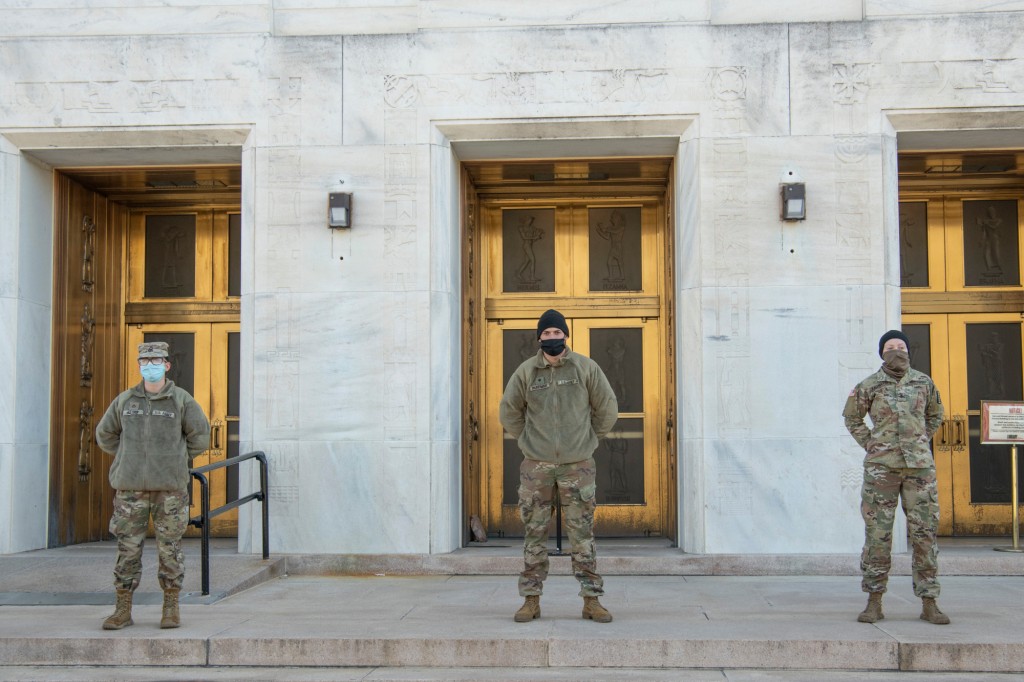
National Guard Soldiers stand guard at the John Adams Building, Library of Congress, Washington, D.C. National Guard Soldiers and Airmen have traveled to the National Capital Region to provide support leading up to the 59th Presidential Inauguration. (photo: Tech. Sgt. Lucretia Cunningham)
15,000 National Guard troops are now in DC for the scheduled Jan. 20 inauguration of President-elect Joe Biden. But with so many troops in a city that has become a maze of black fencing, cement barriers and dozens of checkpoints, there is an eerie calm in Washington DC, ahead of a feared storm of supporters of President Donald Trump, who don’t believe their candidate lost and are willing to continue the violence.
Photos of the Guard protecting the Library of Congress Adams Building shows the soldiers in front of the cast glass panels made by Washington Glass Studio with Portland’s Fireart Studio. Click Here to jump to the 2012 American Craft interview and photos of the cast glass made and the process to make the architectural artwork.
We are happy that the military is taking no chances with who was coming to protect the inauguration.
On a normal day, it takes about an hour to walk the 2.5 miles down Pennsylvania Avenue to Capitol Hill.
But these are no normal days.
These precautions come a week after a mob of supporters of Trump stormed the U.S. Capitol to try to overturn the results of the presidential election.
